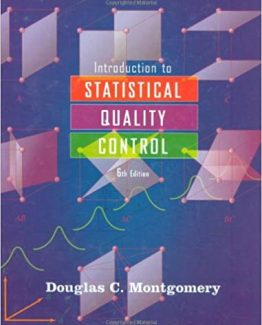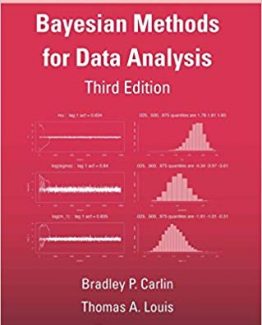Fiscal Administration 10th Edition by John Mikesell, ISBN-13: 978-1305953680
[PDF eBook eTextbook] – Available Instantly
- Publisher: Cengage Learning; 10th edition (January 1, 2017)
- Language: English
- 720 pages
- ISBN-10: 1337658545
- ISBN-13: 978-1305953680
FISCAL ADMINISTRATION, Tenth Edition, gives you the power to understand public finances as a participant who can put the process together, not just as a bystander. With U.S. federal, state, and local budgets, financial reports, and other documents, you can see how policymakers and administrators operate and learn skills needed to function in those systems. Chapters illustrate concepts and issues with case studies from the private and nonprofit sector as well as from government finance.
Table of Contents:
About the Author
Preface
Contents
Ch 1: Fundamental Principles of Public Finance
Why Public Finance and Budgeting?
Public Finance versus Business Finance
Functions of Government: Market Failures
Functions of Government: Economic Stabilization
Functions of Government: Redistribution
Privatization
Building Public Choices from Individual Preferences
The Layers of Government
Conclusion
Questions and Exercises
Case for Discussion
Part 1: Budgeting, Budget Structures, and Budget Reform
Ch 2: The Logic of the Budget Process
Size and Growth of Government Expenditure
What Is a Budget?
Budget Process and Logic
Administrative and Functional Classification
What the Budget Process Should Contribute
The Budget Cycle
Government Accounting and Financial Reporting
Budgets and Political Strategies
Conclusion
Questions and Exercises
Case for Discussion
Ch 3: Budget Methods and Practices
Growth Rates and Simple Forecasts
Preparation of Agency Budget Requests
Review of Budgets
The Executive Budget: The Plan and the Balancing
Managing Budget Execution
Audit and Evaluation
Conclusion
Questions and Exercises
Case for Discussion
Ch 4: Federal Budget Structures and Institutions
Federal Spending
The Fiscal Control Record
Legal Framework for Federal Budgeting
Phases in the Federal Budget Cycle
Sorts of Budget Authority
Mandatory and Discretionary Spending
Federal/Trust, On-Budget/Off-Budget
Conclusion
Questions and Exercises
Appendix 4-1
Ch 5: State and Local Budgets
State and Local Spending and Services Delivered
Fiscal Control and Conditions
State and Local Budget Processes
The Elephant in the Room: State and Local Pensions and Other Post-Employment Benefits
Conclusion
Questions and Exercises
Appendix 5-1
Ch 6: Budget System Reforms: Trying to Make Better Choices
Considering the Flow of Provision of Government Services: The Logic of the Service System and Budget
Traditional Performance Budgets
Program Budgets
An Illustration of an Expenditure in Alternative Classifications
Results-Based, Outcome-Driven, New Performance Budgeting
Conclusion
Questions and Exercises
Appendix 6-1
Appendix 6-2
Ch 7: Capital Budgeting, Time Value of Money, and Cost-Benefit Analysis: Process, Structure, and Bas
Why Have a Separate Capital Budget Process?
A Process for Managing Capital Expenditure
Problems in Capital Budgeting
Accounting for Time: Discounting and Compounding
Organizing Information for Choices: Cost-Benefit Analysis
Conclusion
Questions and Exercises
Case for Discussion
Part 2: Revenue Sources, Structure, and Administration
Ch 8: Taxation: Criteria for Evaluating Revenue Options
Taxation in the United States: A Brief Overview of the Systems
Standards for Tax Policy
State and Local Taxes and Economic Development
Taxes and Externalities
Conclusion
Questions and Exercises
Case for Discussion
Ch 9: Major Tax Structures: Income Taxes
Some Background
The Argument about Taxing Income
Individual Income Taxation
The Individual Income Tax Gap
Corporate Income Taxation
Payroll Taxation
Conclusion
Questions and Exercises
Case for Discussion
Ch 10: Major Tax Structures: Taxes on Goods and Services
The Equity Question
Selective Excise Taxation
General Taxes on Goods and Services: Retail Sales and Value-Added Taxes
Retail Sales Taxes
Value-Added Taxes
Conclusion
Questions and Exercises
Cases for Discussion
Ch 11: Major Tax Structures: Property Taxes
Good Tax, Bad Tax?
Arithmetic and Application of Rates, Levies, and Assessed Value
Property Tax Relief Mechanisms
Conclusion
Questions and Exercises
Cases for Discussion
Ch 12: Revenue from User Fees, User Charges, and Sales by Public Monopolies
User Fees and Licenses
User Charges
Public Monopoly Revenue: Utilities, Liquor Stores, and Gambling Enterprises
Conclusion
Questions and Exercises
Cases for Discussion
Ch 13: Revenue Forecasts, Revenue Estimates, and Tax Expenditure Budgets
Revenue Forecast (or Baseline)
Monitoring and Evaluating
Revenue Estimating (or Scoring)
Tax Expenditure Budgets
Conclusion
Questions and Exercises
Case for Discussion
Appendix 13-1
Ch 14: Intergovernmental Fiscal Relations: Diversity and Coordination
Correspondence and Subsidiarity
Is Bigger Better?
Fiscal Disparity
Coordination and Assistance: Tax Systems
Coordination and Assistance: Grants
States and School Aid
Coordination and Assistance: Mandates
Conclusion
Questions and Exercises
Case for Discussion
Part 3: Administering Debt, Working Capital, and Pension Funds
Ch 15: Debt Administration
Federal Debt
State and Local Government (Municipal) Debt
When Government Finances Go Horribly Wrong: Debt and Other Claims
Conclusion
Questions and Exercises
Appendix 15-1
Index
John L. Mikesell is Chancellor’s Professor of Public and Environmental Affairs Emeritus at Indiana University. His work in government finance, budgeting, and taxation has appeared in such journals as National Tax Journal, Southern Economic Journal, Public Finance Review, Public Budgeting & Finance, Public Finance and Management, State Tax Notes, Public Choice, International Journal of Public Administration, Tax Notes, and Public Administration Review and he is internationally regarded as an expert in general sales taxation. He is coauthor with John F. Due of Sales Taxation: State and Local Structures and Administration, a standard guide for policy discussions about that tax. He was editor-in-chief of Public Budgeting & Finance, the journal of the American Association for Budget and Program Analysis and the Association for Budgeting and Financial Management for fifteen years. He has served on the Revenue Forecast Technical Committee of the Indiana State Budget Agency for over thirty years, has been a David Lincoln Fellow in Land Value Taxation with the Lincoln Institute for Land Policy, has been Senior Research Fellow, Peking University–Lincoln Institute Center for Urban Development and Land Policy, Beijing, People’s Republic of China, and has been visiting scholar at the Congressional Budget Office. He has served as chief fiscal economist and chief of party with the USAID Barents Group/KPMG Peat Marwick fiscal reform project with the Government of Ukraine, as Moscow-based director for assistance in intergovernmental fiscal relations with the USAID Georgia State University Consortium Russian fiscal reform project, and has worked as consultant on World Bank missions to the Kyrgyz Republic, Kazakhstan, Azerbaijan, Tajikistan, and Turkmenistan, He has been the sales tax expert on tax reform research and discussions in Indiana, Hawaii, Nebraska, Minnesota, and New York. He holds a BA from Wabash College and MA and PhD in economics from the University of Illinois and is a member of Phi Beta Kappa. He received the 2002 Wildavsky Award for Lifetime Scholarly Achievement from the Association for Budgeting and Financial Management and the 2015 Steven D. Gold Award for Outstanding Contributions to State and Local Fiscal Policy from the National Tax Association.
What makes us different?
• Instant Download
• Always Competitive Pricing
• 100% Privacy
• FREE Sample Available
• 24-7 LIVE Customer Support






Reviews
There are no reviews yet.